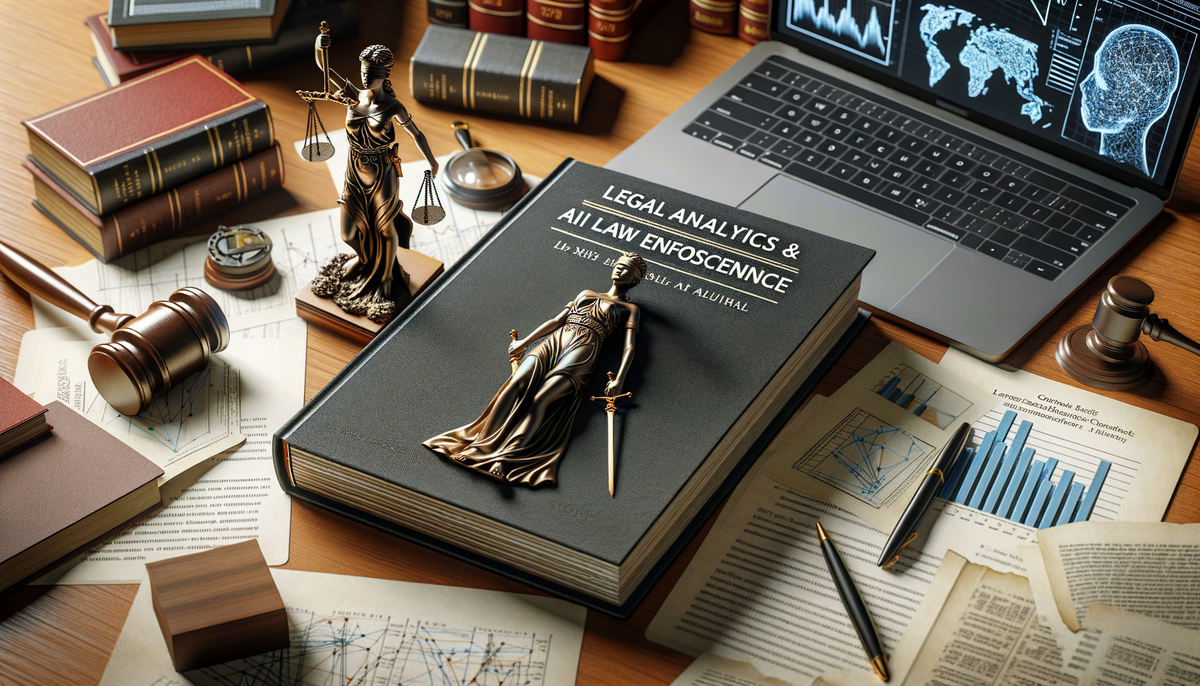Calvin Crew: The Conviction and Sentencing in the Murder of Uber Driver Christina Spicuzza
Explore the intricate details of the Calvin Crew case and its broader implications on legal analytics and AI consultancy in law enforcement.

Calvin Crew: The Conviction and Sentencing in the Murder of Uber Driver Christina Spicuzza
The story of Calvin Crew has gripped the nation with its complex interplay of crime, justice, and the personal histories of everyone involved. This week, the case has reached a milestone, making headlines and sparking discussions across various sectors, including our expertise in AI consulting on legal analytics and procedural efficiencies.
The Incident: The Murder of Christina Spicuzza
On a cold February night in 2022, a routine Uber ride in Pittsburgh turned into a haunting crime scene. Calvin Crew, a 25-year-old from Pitcairn, Pennsylvania, was sentenced to life in prison without parole this week for the murder of 38-year-old Christina Spicuzza, an Uber driver and mother of four. The verdict was passed on May 5, 2025, culminating a legal battle marked by significant evidence and emotional testimonies.
According to The New York Post, Crew’s conviction was based on a plethora of evidence, including dashcam footage of the crime, Crew's fingerprints, and digital trails that led the jury to convict him of first-degree murder.
A Web of Evidence
The prosecution built a formidable case against Crew using technological means which were central to the conviction. Evidence presented included dashcam videos from Spicuzza's vehicle showing Crew brandishing a weapon. Additional evidence such as cell phone GPS data, Uber records, and license plate recognition technology painted a vivid picture of Crew's intentions and actions.
As the WTAE Pittsburgh reported, the jury's confirmation of Crew's guilt was swift, occurring less than an hour after deliberations began. This was supported by 422 exhibits presented by the prosecution, underscoring the strength of their case.
The Legal Battle: Conviction and Sentencing
On February 10, 2025, exactly three years after the tragic event, Crew was found guilty by a jury of peers. His charges were extensive, including first-degree murder, robbery, kidnapping, illegal possession of a firearm, and several others. The defense attempted to frame the case within a context of systemic bias, but the jury was not convinced.
Despite his absence from his sentencing, Crew, through his lawyer, shared poignant details about his troubled past and current mental state as part of a mitigation effort. According to The Pittsburgh Post-Gazette, Crew's defense highlighted his upbringing in violence and neglect, although this did not sway the court’s sentencing.
Reflections and Implications for the Legal System
Allegheny County District Attorney Stephen Zappala publicly supported the jury's decision, emphasizing the comprehensive nature of evidence which sealed Crew’s fate. While justice was delivered, it’s a solemn reminder of the lives devastated by violent crime.
The case also presents a crucial discussion point about the integration of advanced analytical and AI tools within law enforcement and judicial processes—a sector we, as leaders in AI consulting, continue to support and develop. From gathering dashcam footage to processing vast data on digital movements, technology played a pivotal role in securing a conviction.
Actionable Insights
For professionals in the field of criminal justice and AI consultancy, this case serves as a salient lesson in the power of combined analytical tools. Ensuring that law enforcement agencies have access to advanced technology is vital for building effective legal cases. In our consulting services, we emphasize the importance of implementing AI-driven solutions to enhance the accuracy and efficiency of legal processes.
The Road to Justice
The Spicuzza family’s influence on the sentencing choice—opting for a life sentence instead of the death penalty due to personal and religious convictions—highlights another layer of ethical considerations in legal justice, a discussion point for policy-makers and consultants alike.
As the legal field continues to evolve with technological advancements, we encourage businesses and legal professionals to explore how AI and data analytics can streamline processes, improve case outcomes, and uphold justice. Contact our team to see how our expertise can support your organization’s goals in navigating the complexities of legal tech innovations.
Call to Action: Leverage advanced AI capabilities in your legal procedures with the help of our consulting services. Reach out today to discover how we can aid in transforming legal and procedural efficiencies.




